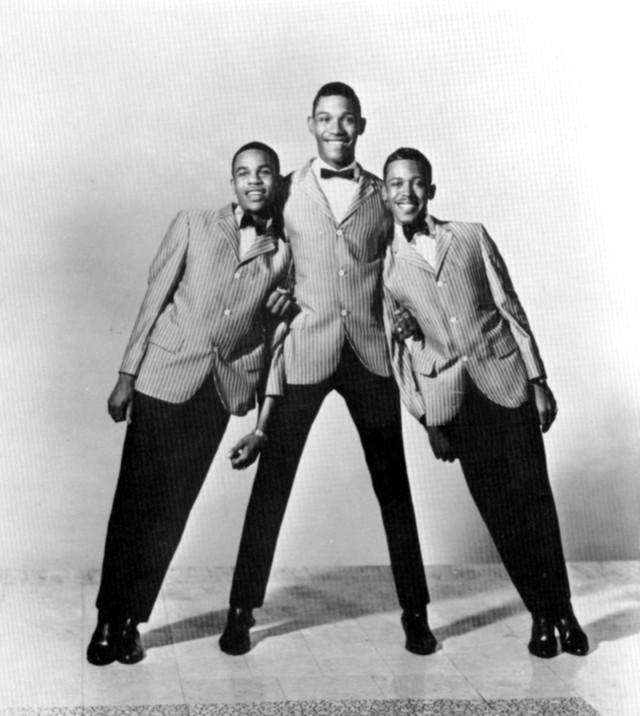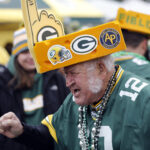The summer of 1966 was a vibrant tapestry of sound, especially along the bustling boardwalks and beaches. Transistor radios, the ubiquitous carriers of summer anthems, spilled out hit after hit. That year, the airwaves were dominated by iconic tracks like The Rolling Stones’ “Paint It, Black,” Tommy James and the Shondells’ “Hanky Panky,” and The Temptations’ “Ain’t Too Proud to Beg.” Amidst this rich musical landscape, another sound emerged from Detroit, not from the Motown hit factory, but from The Capitols, bringing with them the infectious rhythm of the jerk dance.
The Capitols’ story began in 1962, initially forming as a band named the Caps, rather than just a vocal group. The original lineup featured Samuel George on drums and lead vocals, Don Storball on guitar and backup vocals, and Richard Mitchell on keyboards and backup vocals. Their break came when they opened for Barbara Lewis, catching the attention of Ann Arbor DJ Ollie McLaughlin, who owned Karen Records. McLaughlin signed them, and in 1963, they released their debut single, “Dog and Cat” b/w “The Kick.” While energetic, like their future work, the single’s lyrical content didn’t resonate, and the Caps initially failed to find their audience, leading to the group’s disbandment.
 The Capitols
The Capitols
The 1960s were a decade synonymous with dance crazes. From the Twist to the Watusi and the Frug, each dance had its moment in the spotlight. One of the most memorable was the jerk. This dance, known for its more suggestive movements, even earned the moniker “pimp jerk” in some Detroit clubs, highlighting its edgier appeal. Don Storball, sensing the cultural shift and the dance’s growing popularity, penned a song aiming to ride the jerk craze wave. Astutely aware of potential radio censorship, he opted for the less provocative title “Cool Jerk,” rather than the potentially banned “Pimp Jerk.”
Recognizing the hit potential of Storball’s song, the original Capitols trio reunited and contacted McLaughlin to record. On March 14, 1966, they entered the studio to lay down “Cool Jerk.” While not a Motown record in origin, the session musicians were none other than Motown’s legendary Funk Brothers. Ollie McLaughlin produced the track. Despite planned horn parts, the horn players, possibly wary of upsetting Berry Gordy Jr., were absent from the session. Undeterred, the recording proceeded, with the horn arrangements simply omitted from the final mix.
Released just two weeks later on Karen Records, “Cool Jerk” rapidly gained traction. Atlantic Records soon picked it up for wider distribution, propelling it to #7 on the Billboard Hot 100 chart and #2 on the R&B chart. Capitalizing on this momentum, The Capitols released two albums in 1966, Dance the Cool Jerk and We Got a Thing. These albums were largely compilations of Motown and soul covers. While Dance the Cool Jerk briefly touched the Top 100 album chart, neither album achieved significant success.
Following their smash hit, The Capitols released eight more singles, but only two managed to chart, and none climbed higher than #65. This cemented their status as a quintessential one-hit wonder. The group disbanded permanently in 1969. Don Storball later became a police officer and remained in Detroit. Sadly, Samuel George passed away in 1982, followed by Richard Mitchell in 1984.
Despite their brief time in the limelight, The Capitols and “Cool Jerk” left an indelible mark. The song’s infectious rhythm and danceable beat ensured its longevity. “Cool Jerk” has been covered by numerous artists across genres, including Todd Rundgren, The Tremeloes, The Coasters, The Outsiders, and The Go-Gos. Its cultural impact extends to film, notably featuring in Standing in the Shadows of Motown, with a memorable performance by Bootsy Collins backed by the Funk Brothers, underscoring the song’s enduring appeal and its connection to the jerk dance that defined a moment in 1960s music history.


